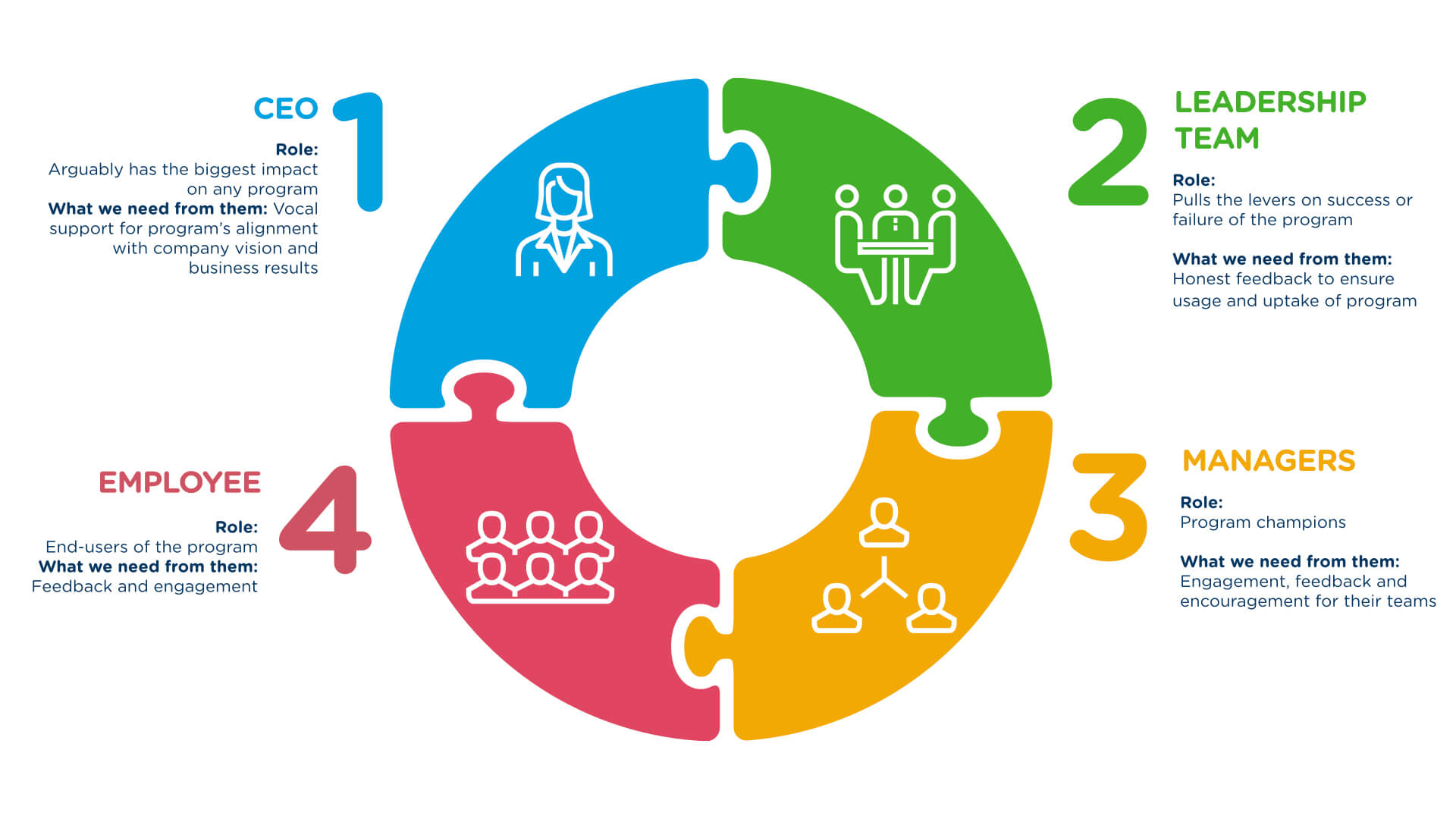team building
Empowering Teams: Effective Strategies for Remote Work Success

Empowering Teams: Effective Strategies for Remote Work Success
As the landscape of work continues to evolve, remote work has become a predominant feature of modern business. Navigating the challenges and maximizing the benefits require well-crafted strategies. In this article, we delve into effective remote work strategies that empower teams and drive success.
Creating a Collaborative Virtual Environment
One of the key challenges in remote work is maintaining a sense of collaboration. To overcome this, businesses should invest in collaborative tools and platforms. Video conferencing, project management systems, and communication apps play a crucial role in fostering virtual teamwork. Establishing clear communication channels helps bridge the physical gap and promotes a sense of unity among remote team members.
Setting Clear Expectations and Goals
Clarity is paramount in a remote work setting. Establishing clear expectations and goals helps remote employees understand their roles and responsibilities. Clear communication regarding deadlines, deliverables, and performance expectations ensures that everyone is on the same page. This clarity not only enhances productivity but also contributes to a positive work culture.
Encouraging Flexible Schedules and Work-Life Balance
Remote work often comes with the benefit of flexibility. Encouraging team members to adopt flexible schedules that suit their individual preferences can contribute to increased job satisfaction. However, it’s equally important to emphasize the importance of maintaining a healthy work-life balance. Establishing boundaries and promoting self-care can prevent burnout and ensure sustained productivity.
Fostering Virtual Team Building Activities
Building a strong team culture is challenging when employees are geographically dispersed. Virtual team-building activities can bridge this gap. From virtual happy hours to online games and collaborative projects, fostering a sense of camaraderie among team members is essential. These activities contribute to a positive team spirit and strengthen interpersonal connections.
Providing Adequate Training and Support
Remote work often requires employees to adapt to new technologies and tools. Providing comprehensive training and ongoing support is crucial for the seamless integration of remote work strategies. This ensures that team members feel equipped to navigate the digital landscape and perform their roles efficiently.
Implementing Performance Monitoring and Feedback Systems
In a remote work environment, traditional methods of performance monitoring may need adjustment. Implementing digital tools for performance tracking and providing regular feedback becomes essential. This not only helps in gauging individual and team performance but also provides opportunities for professional development.
Cultivating a Culture of Trust and Accountability
Trust is the foundation of successful remote work strategies. Leaders should cultivate a culture of trust by empowering their teams and acknowledging individual contributions. Simultaneously, fostering accountability ensures that team members take ownership of their tasks and deliverables. This dual approach creates a balanced and resilient remote work culture.
Leveraging Technology for Seamless Collaboration
The right technology is instrumental in ensuring seamless collaboration among remote teams. Cloud-based solutions, collaborative software, and virtual project management tools facilitate efficient workflows. Integrating these technologies streamlines processes, enhances communication, and promotes a unified work environment.
Addressing Mental Health and Well-Being
The isolation of remote work can impact the mental health and
Elevating Business Success Through Employee Engagement

Elevating Business Success Through Employee Engagement
Employee engagement is not merely an HR buzzword; it is a transformative force that can significantly impact the success and sustainability of businesses. By fostering a culture of engagement, companies empower their workforce, enhance productivity, and create an environment conducive to innovation and growth.
Understanding the Essence of Employee Engagement
Employee engagement goes beyond job satisfaction. It is a holistic approach that encompasses an employee’s emotional commitment, passion for their work, and alignment with the company’s values and goals. Engaged employees are not just content; they are motivated, dedicated, and actively contribute to the success of the organization.
Building a Positive Workplace Culture
A positive workplace culture is the bedrock of employee engagement. Companies need to cultivate an environment where employees feel valued, respected, and included. Open communication, transparency, and a sense of belonging contribute to a positive culture that, in turn, fuels engagement.
Effective Communication: A Cornerstone of Engagement
Communication is a two-way street, and fostering engagement requires transparent and effective communication channels. From sharing company goals to providing regular feedback and recognition, communication builds trust and keeps employees informed and motivated.
Recognition and Appreciation Fueling Engagement
Employees crave recognition for their contributions. Recognizing and appreciating achievements, big or small, instills a sense of pride and motivates employees to continue putting in their best effort. Acknowledgment is a powerful tool in creating a culture of appreciation and engagement.
Empowering Employees Through Professional Development
Investing in professional development opportunities demonstrates a commitment to employees’ growth. Whether through training programs, mentorship initiatives, or educational support, empowering employees with tools for career advancement fosters a sense of loyalty and engagement.
Flexible Work Arrangements for Work-Life Balance
Work-life balance is a significant factor in employee satisfaction and engagement. Offering flexible work arrangements, such as remote work options or flexible hours, shows an understanding of employees’ diverse needs and contributes to a healthier work-life equilibrium.
Creating Opportunities for Employee Input and Feedback
Engaged employees want to feel that their opinions matter. Creating channels for employee input and feedback not only provides valuable insights but also makes employees feel valued and involved in the decision-making process. This participatory approach fosters a sense of ownership and commitment.
Social Connectivity and Team Building
A sense of belonging is crucial for engagement, especially in larger organizations. Social activities and team-building exercises create opportunities for employees to connect on a personal level, fostering a supportive and collaborative work environment.
Leadership’s Role in Nurturing Engagement
Leadership plays a pivotal role in shaping the engagement landscape. Leaders should exemplify the values of the organization, communicate a compelling vision, and actively support and recognize their teams. When leadership prioritizes and champions engagement, it permeates throughout the entire organization.
Measuring and Adapting Engagement Strategies
Regularly measuring employee engagement allows businesses to understand the effectiveness of their strategies. Employee surveys, feedback sessions, and performance metrics provide valuable data to assess engagement levels and identify areas for improvement. Continuous adaptation of engagement strategies ensures their relevance and impact.
Elevating
